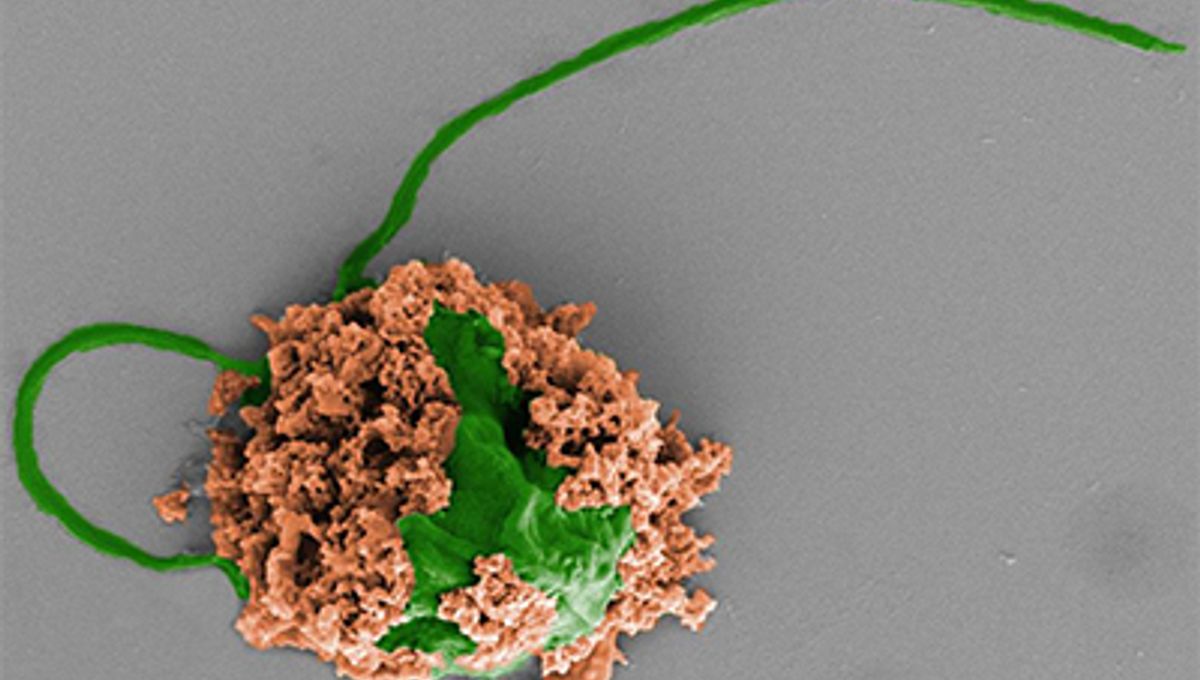
Even medicine may be making way for our robot overlords, albeit in a microscopic form, as researchers have demonstrated a swarm of micro-robots clearing mice’s lungs of a pneumonia infection. A form of microscopic cyborg made from algae cells and antibiotic nanoparticles, the microscopic robots swim towards the pneumonia bacterial cells before delivering the drug and killing them, effectively clearing the organ of infection.
The microbots resulted in the mice being 100 percent clear of infection, while the mice left untreated died within three days.
Researchers used natural algae cells to provide movement to the bots, allowing them to move smoothly through the lungs and reach bacterial cells that standard medication may not.
The team then packaged antibiotic nanoparticles into little spheres made of a polymer coated with the membrane of white blood cells. Such a membrane can absorb inflammation-inducing molecules produced by the bacteria – so not only do the microbots kill the invading pathogen, they mop up any nasty molecules they have released that could still cause damage.
The team had previously used similar bots in the stomach and blood, and now they turned their attention to a more difficult organ.
Taking a set of mice infected with Pseudomonas aeruginosa, which causes a fatal form of pneumonia most commonly caught while on hospital ventilation, and delivered a dose of the robots into their windpipe.
After one week, the infected mice were completely cleared of infection. All experimental mice survived after 30 days, while the untreated mice died within three.
So, what’s the advantage of the microbots in comparison to good ol’ antibiotics? Utilizing the bots’ impressive ability to catch bacterial cells, the dose of antibiotics required to clear the mice of pneumonia was 3,000 times lower than the amount required for an IV delivery. With antibiotic resistance on the rise, the quick, efficient, and total destruction of bacterial pathogens is incredibly important.
“With an IV injection, sometimes only a very small fraction of antibiotics will get into the lungs. That’s why many current antibiotic treatments for pneumonia don’t work as well as needed, leading to very high mortality rates in the sickest patients,” said Victor Nizet, professor at UC San Diego School of Medicine and co-author on the study, in a statement.
“Based on these mouse data, we see that the microrobots could potentially improve antibiotic penetration to kill bacterial pathogens and save more patients’ lives.”
The team now hopes to delve deeper into how the microbots interact with the immune system, with the eventual goal of bringing the technology to human trials.
The research was published in Nature Materials.
Source Link: Tiny Robots Entirely Clear Pneumonia Infection In Mice In Just 3 Days